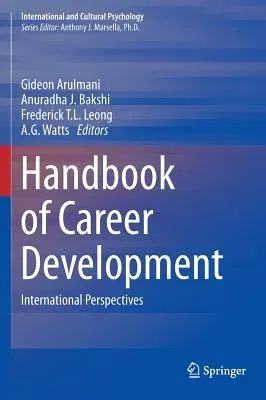Handbook of Career Development: International Perspectives (2014)Hardcover - 2014, 8 February 2014

Qty
1
Turbo
Ships in 2 - 3 days
In Stock
Free Delivery
Cash on Delivery
15 Days
Free Returns
Secure Checkout

Part of Series
International and Cultural Psychology
Part of Series
International and Cultural Psychology (Hardcover)
Print Length
771 pages
Language
English
Publisher
Springer
Date Published
8 Feb 2014
ISBN-10
1461494591
ISBN-13
9781461494591
Description
Product Details
Book Edition:
2014
Book Format:
Hardcover
Country of Origin:
NL
Date Published:
8 February 2014
Dimensions:
25.4 x
17.78 x
4.29 cm
Genre:
Psychological
ISBN-10:
1461494591
ISBN-13:
9781461494591
Language:
English
Location:
New York, NY
Pages:
771
Publisher:
Weight:
1601.18 gm